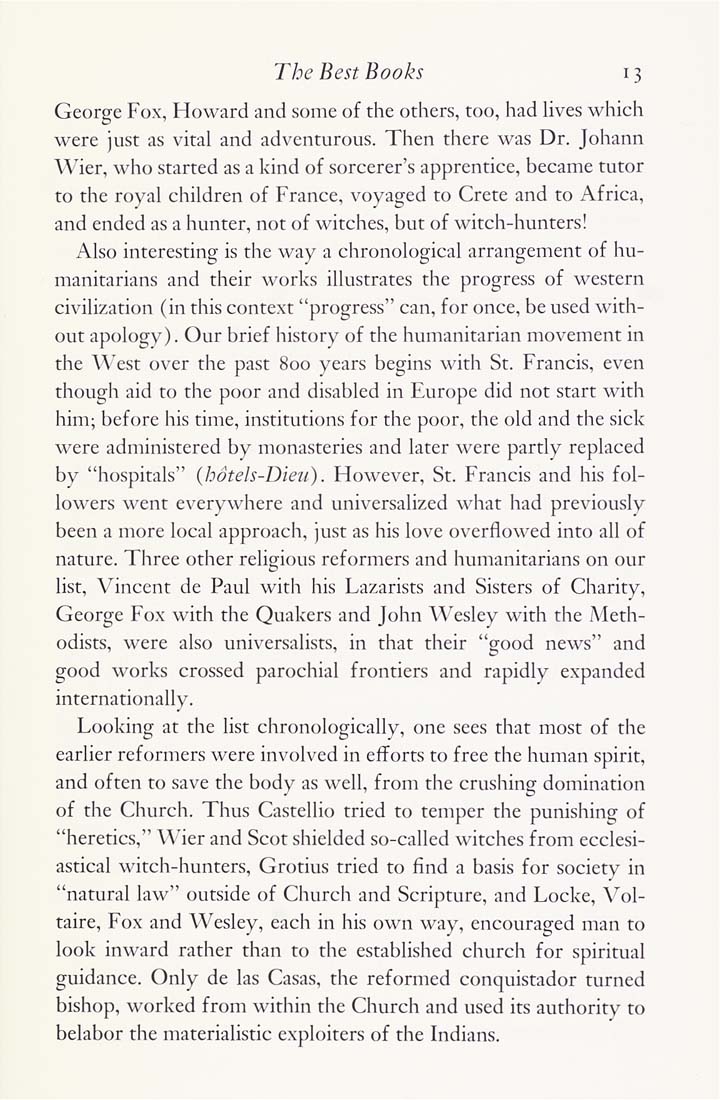Columbia Library columns (v.23(1973Nov-1974May))
(New York : Friends of the Columbia Libraries. )
|
||
|
|
|
|
| v.23,no.3(1974:May): Page 13 |

The Best Books 13 George Fox, Howard and some of the others, too, had lives which were just as vital and adventurous. Then there was Dr. Johann Wier, who started as a kind of sorcerer's apprentice, became tutor to the royal children of France, voyaged to Crete and to Africa, and ended as a hunter, not of witches, but of witch-hunters! Also interesting is the way a chronological arrangement of hu¬ manitarians and their works illustrates the progress of western civilization (in this context "progress" can, for once, be used with¬ out apology). Our brief history of the humanitarian movement in the ^\'est over the past 800 years begins with St. Francis, even though aid to the poor and disabled in Europe did not start with him; before his time, institutions for the poor, the old and the sick were administered by monasteries and later were partly replaced by "hospitals" (hotels-Dieu). However, St. Francis and his fol¬ lowers went everywhere and universalized what had previously been a more local approach, just as his love overflowed into all of nature. Three other religious reformers and humanitarians on our list, Vincent de Paul with his Lazarists and Sisters of Charity, George Fox with the Quakers and John Wesley with the Meth¬ odists, were also tiniversalists, in that their "good news" and good works cro,ssed parochial frontiers and rapidly expanded internationally. Looking at the list chronologically, one sees that most of tlie earlier reformers were involved in efforts to free the human spirit, and often to save the body as well, from the crushing domination of the Church. Thus Castellio tried to temper the punishing of "heretics," A\'ier and Scot shielded so-called witches from ecclesi¬ astical witch-hunters, Grotius tried to find a basis for society in "natural law" outside of Church and Scripture, and Locke, Vol¬ taire, Fox and Wesley, each in his own way, encouraged man to look inward rather than to the established church for spiritual guidance. Only de las Casas, the reformed conquistador turned bishop, worked from within the Church and used its authotity to belabor the materialistic exploiters of the Indians. |
| v.23,no.3(1974:May): Page 13 |







